The Quiet Undoing of Varanasi's Pluralism, One Person at a Time
Once proud of its Ganga-Jamuni tehzeeb, Varanasi now faces a shift, where even a simple question can lead to doubt, and an identity card feels essential for safety.
He is polite. Unlike the many e-rickshaw drivers I have flagged down during my 10-day stay in Varanasi, he doesn't start with a bank-breaking fair, even though he sees me standing in front of a hotel and knows that I am a visitor. There is no need to haggle. In this VIP city, the prime minister's constituency for the third time, there's no meter system or fixed rates for e-rickshaws or autos. But his ask seems fair. I can say this with confidence, having frequently visited the city over the last two years and often spending summer vacations here as a child when one of my uncles was posted in the city.
I first visited Varanasi in 1994 when I was around nine or ten years old. I didn’t understand the concepts of caste, culture, or religion. I went to a school that strongly advocated secularism and I never imagined discrimination could be based on these things. Varanasi felt like a close cousin to my hometown of Gaya in Bihar. Even though Varanasi is much larger, both cities have a small-town vibe and a similar cultural fabric. Both have a mixed culture and prominent temples and are known as centres for attaining salvation. They are also linked by their Buddhist heritage, with Sarnath in Varanasi and Bodhgaya in Gaya, and both have a significant Muslim population.
In most cases, you develop a special connection with places that feel like home, and that’s exactly what happened to me. After that initial visit, I returned to Varanasi frequently until I left home for further studies in 2003.
The driver’s face speaks of hard times—lined with exhaustion, wild-grown, dark, tangled strands framing hollow cheeks and sunken eyes, giving him an aged look beyond his years. His clothes, worn and frayed at the seams, hang loosely on his skeletal frame, and the dust clings to his skin hinting at long days spent outside in the sweltering heat and humidity. As we move, I notice his grip on the handles and how he frequently turns around to talk to me.
He is chatty, extremely chatty. He tells me a few details about himself—he has lived in Varanasi his entire life and was born in Madanpura, a wholesale market famous for Banarasi saris. "Par sab dukaane band ho rahi hain ab," he sighs, as he talks about a once-thriving business that has fallen into a deplorable state.
He used to work at the sari business till a few years ago, but businesses began to close, and work gradually dried up, forcing him to seek other means of livelihood. "Kuch saalon se toh toto hi chala raha hun," he says, referring to the four-seater e-rickshaws commonly called “toto” in UP and Bihar.
The story of Banarasi saris dates back to the Mughal era, around the 14th century, when silk weaving first found its way to this region. Banaras, as it is commonly known, became popular for its beautiful, handcrafted saris. However, rising costs and changing times have taken a toll on the age-old craft as well as the city's cultural fabric.
Communal politics and shifts in policies have only made things harder, pushing many weavers to look for other ways to make a living. Some have left for other cities, while others have turned to power looms or taken on new jobs, like showing tourists around Varanasi’s ghats or driving e-rickshaws. When machines replace artisans, it’s not just the craft that suffers—it's also the loss of a culture and the way of life.
The driver goes silent for a moment. I gaze out at the narrow, crowded streets; the chaos surrounding us feels like a living, breathing entity. When he begins again, there is a shift in his tone. It's now curious, almost probing. He wants to know everything about me—why I am visiting Bajardiha, another neighbourhood in the city, home to Banarasi weavers, less prominent than Madanpura, but still an important area for the trade. He asks if I am a clothes store owner, if I'm looking to buy wholesale, or perhaps if I'm a blogger.
"Many bloggers come here," he tells me with a grin, his eyes full of curiosity, as if he's trying to figure out my place in this crowded city teeming with temple-goers and those seeking salvation.
"Going to Peeli Kothi would be better," he adds without waiting for my response. "There's this one designer (takes his name) who has designed for many celebrities," he says and continues, "You will get better saris there. Dress material bhi milega."
"I'm not here to buy saris; I have other work in Bajardiha," I tell him.
"But the locality you are visiting only has sari shops," he tells me in a distinct Banarasi-accented Magahi, a reminder that this city is a melting pot of languages and cultures, where every dialect carries its own story.
Varanasi has long been a place of unique harmony between people of different faiths. Muslim weavers have meticulously crafted intricate saris, while Hindu retailers have sold them to patrons around the world. But, in these challenging times, the harmony is starting to fracture, evident even in the smallest conversations.
We navigate the narrow, potholed lanes swamped with garbage. The rickshaw comes to a screeching halt in front of a fancy-looking shop. There are no shops next to it, just one across the street. This area doesn’t resemble an old and flourishing market for saris. He has brought me to a shop of his choice, not even in Bajardiha, where we had initially agreed to go.
After a little confrontation, he turns back and finally takes me to Bajardiha. He stops on the main road, which branches into multiple lanes and narrow alleys. “Main leke chalta hun aapko sari ki dukaan mein,” he says. "But everyone is going to the mosque right now," he adds, glancing around before turning back to me.
It's a Friday afternoon, and every man on the street seems to be in a hurry, rushing to reach the mosque in time for namaaz. "You'll have to wait," he informs me.
I notice his unkempt beard again, how it frames his face, and something shifts inside me—a small, uneasy feeling as I realise the assumptions I've been making. His beard gives him a look that many, including me, might associate with a certain faith that's been demonised in the last few years in our so-called secular country.
I hesitate, but driven by my perception, or perhaps preconceived notions, I ask him if he would introduce me to some of his brothers in the area. "I need to talk to them about their sari business for a project," I say. "I don't have to buy saris. I just have to talk to a few people about the performance of their businesses," I emphasise.
"Oh, Survey karne aaye ho?" he smiles as if he has solved a complicated puzzle. (I have been frequently visiting Varanasi for a potential project on Banarasi weavers over the last couple of years.)
I smile back, trying to match his expression without giving away too much. But after his prompt response, his face changes again—there is a defensive edge that wasn't there before.
He turns towards the dashboard compartment in his rickshaw, rummages through it, and pulls out a small pouch. As he unzips it and digs through its contents, my heart starts to race. I have no idea what to expect.
"See this," he says, holding an identity card up to my face. It shows his photo and name with a surname that screams upper-caste Hindu. "This is my I-card. I am not a Muslim," he insists.
I am taken aback, caught off guard by his reaction.
Most e-rickshaw drivers I've met during my trips don't seem to think much about religion. They take shortcuts where the slightly bigger three-seater autos can't go, opting for the narrow lanes over traffic-congested wider roads. It doesn't matter if an area has a dominant population of a particular religion. Sometimes, they would greet people they know on the way. When you show curiosity, they will share stories and local tidbits about the areas. This driver was doing the same throughout the way—telling me about Peeli Kothi, Madanpura and other places. Perhaps that's why his reaction so takes me aback—it's not what I expected at all. It felt out of place in a city where people usually try to get by, together.
A wave of shame washes over me. Did I somehow make him think that I would have a problem if he were Muslim? Or does he believe that being Hindu serves as a certificate of being a better person in today's deeply polarised country? Either way, I am ashamed as I process the weight of what has just happened.
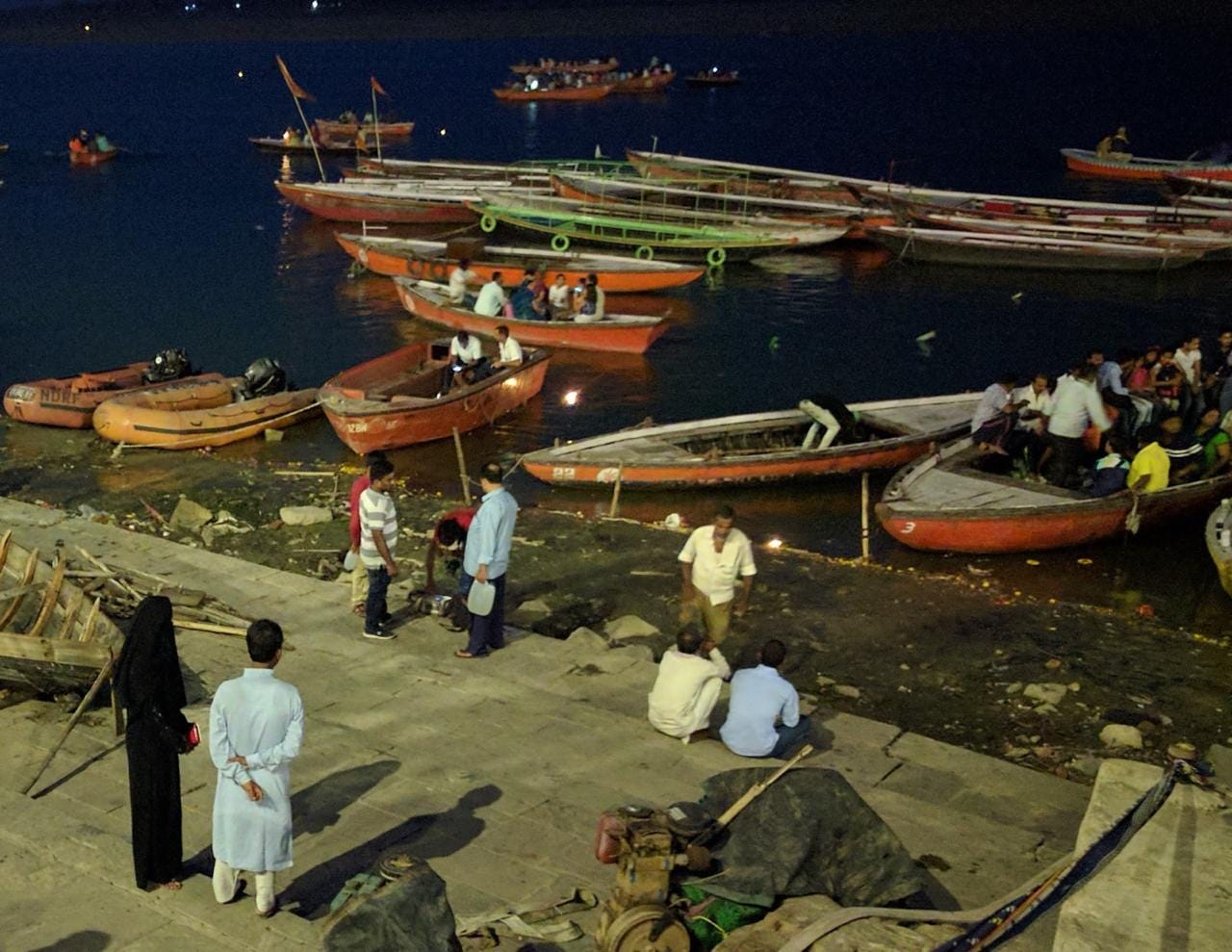
It's not just a misunderstanding; it's a stark reflection of the current reality. I am overwhelmed with regret—a deep sadness for a city that once prided itself on its Ganga-Jamuni tehzeeb, its harmonious blend of cultures and religions, now reduced to this. It is shameful that a simple question can breed doubt, and that someone now feels the need to present an identity card just to feel safe or accepted.
But more than anything, I am troubled by my own complicity. In that split second, I let my perceptions be clouded by the narrative that has slowly seeped into our everyday lives, shaping our interactions in ways we don't even realise. I am ashamed that I failed to see the person in front of me, focusing instead on the labels and markers that have come to define us. Ashamed that I am even writing this piece, because it serves as a reminder that Varanasi's pluralism is being undone, one person at a time, and perhaps, unknowingly, I have been a part of that quiet undoing.
(With thoughtful insights from Nidhi Sethi and valuable feedback from , Fozia Yasin, and .)




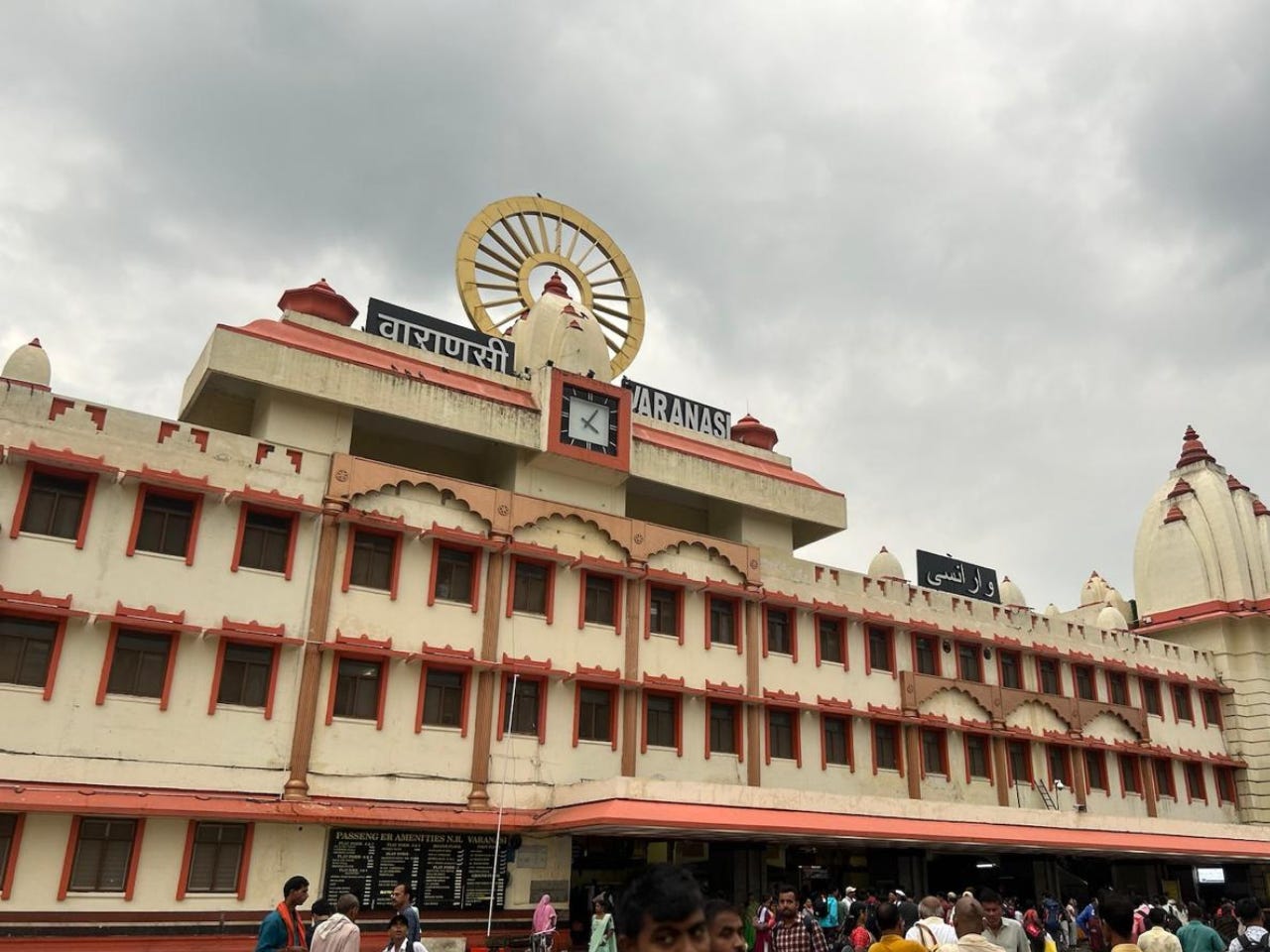
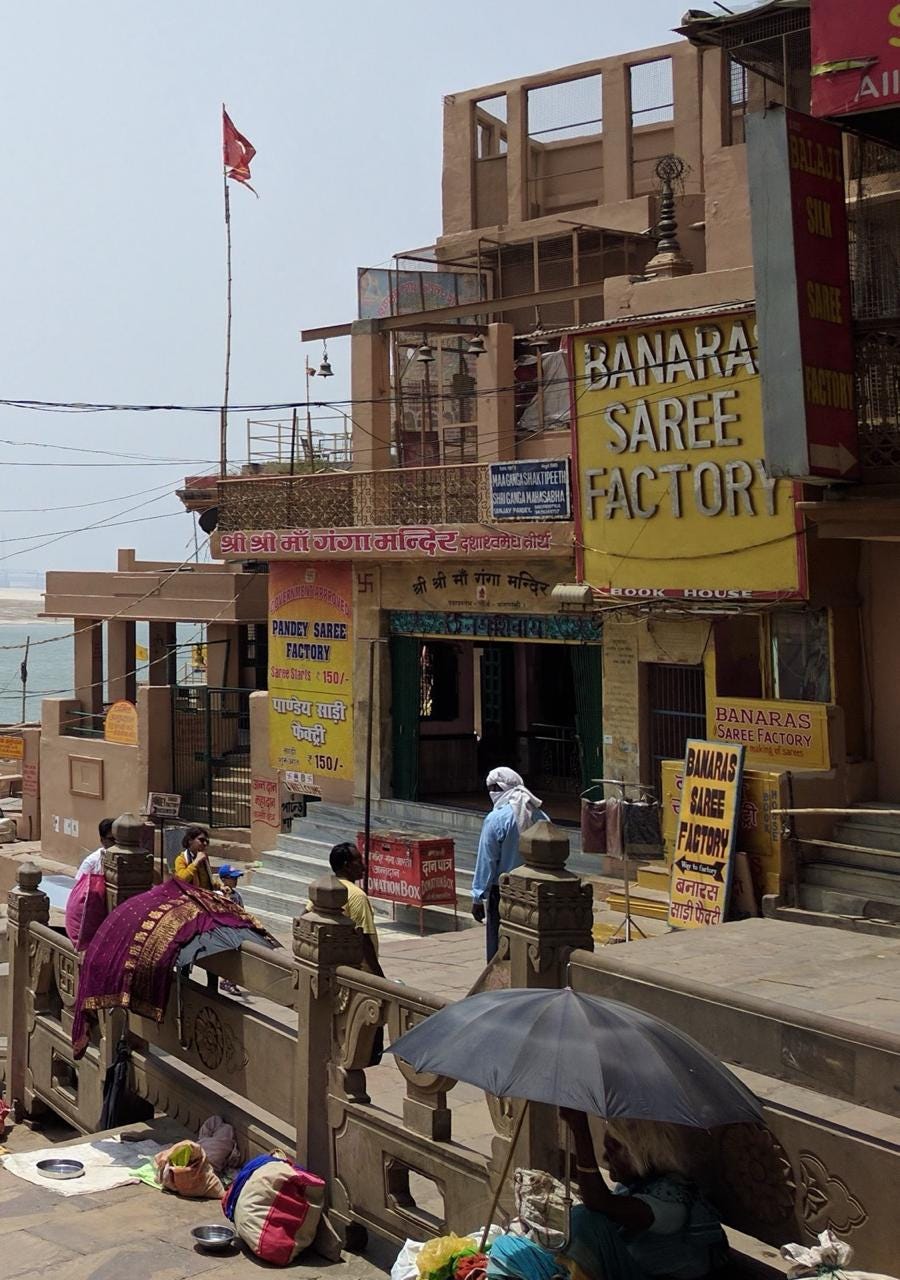
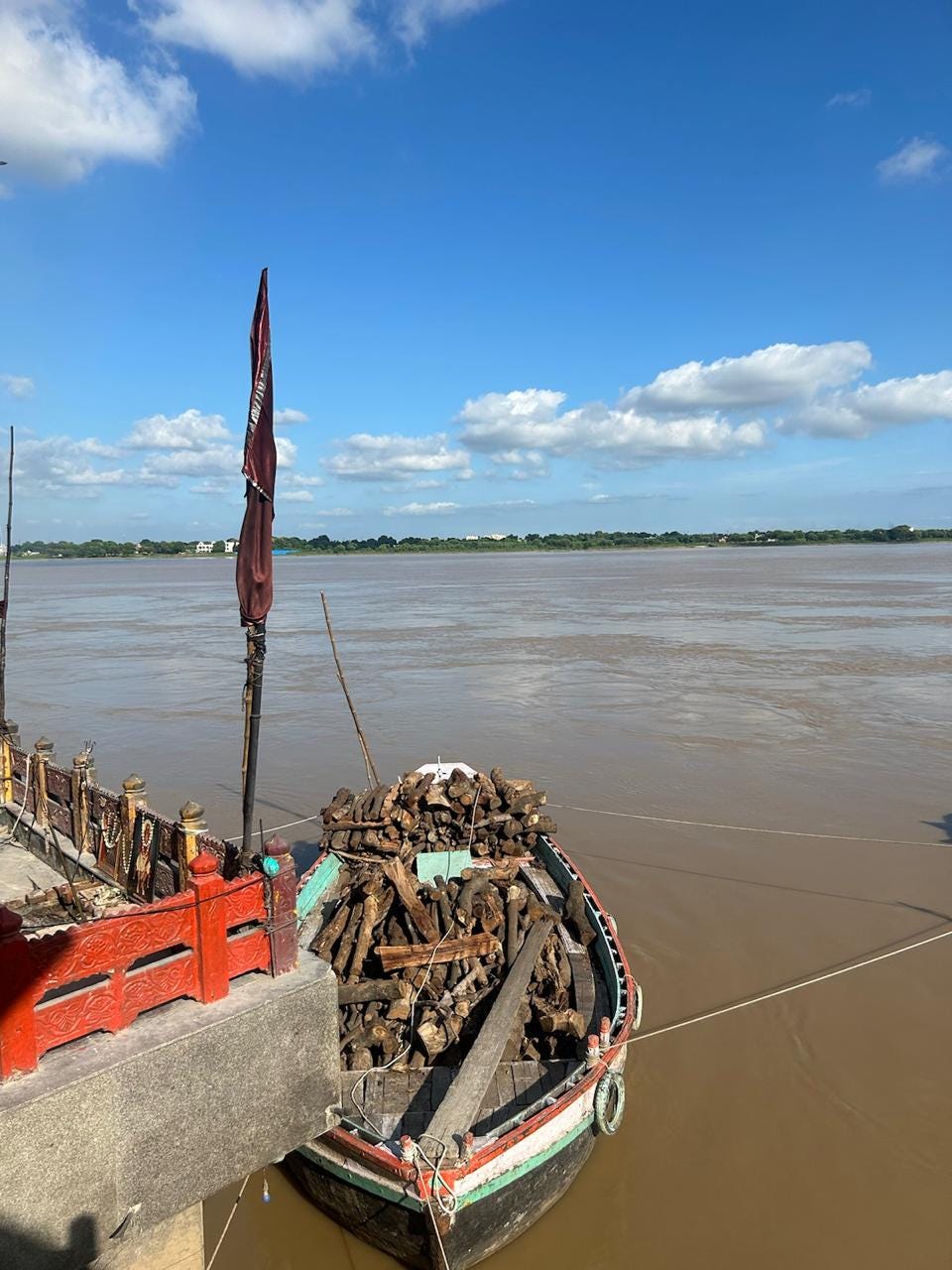
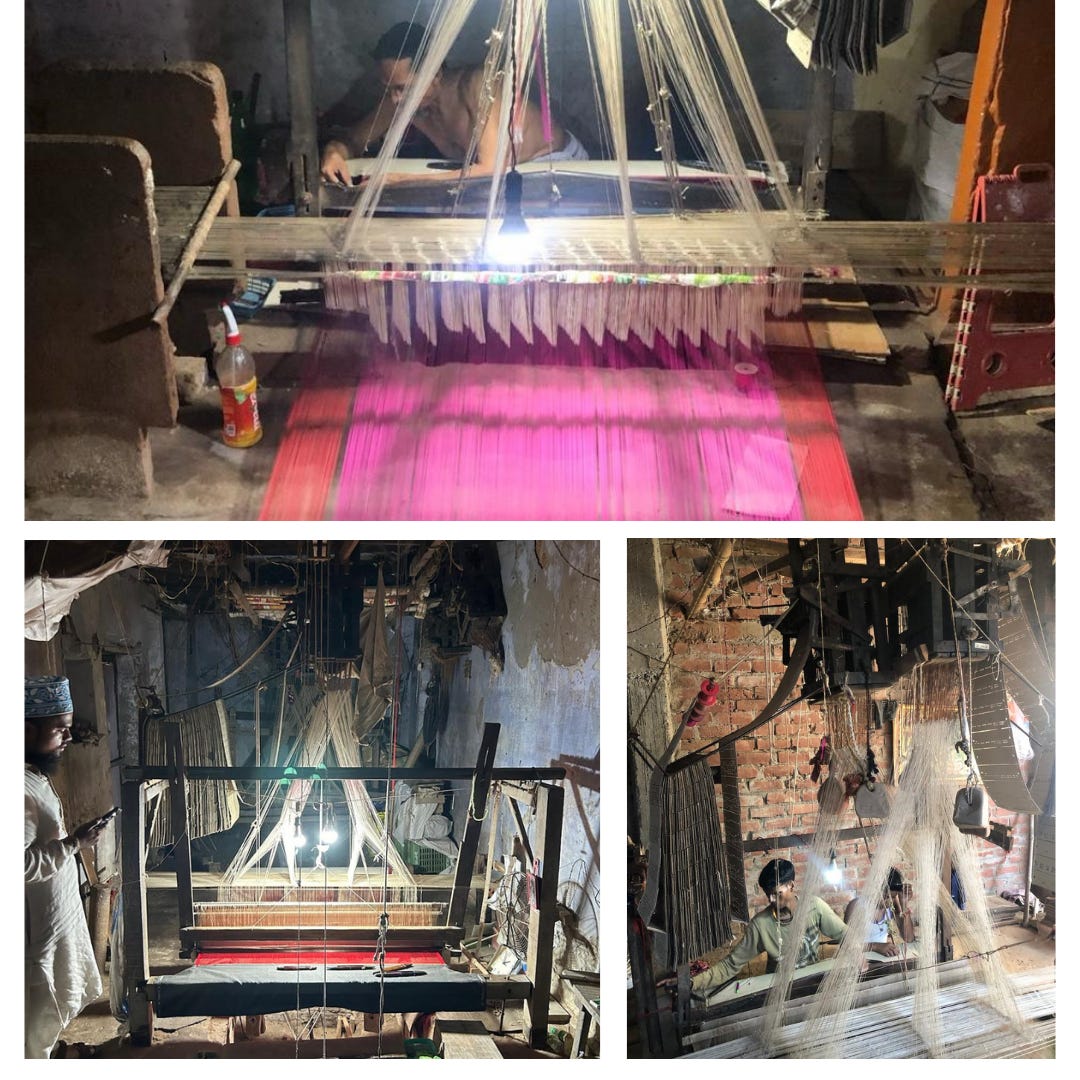
Priyanka, your narrative is simple without any frills of literature and so it hits the raw nerve instantly. You have poignantly woven in the hapless state of the dying trade of Banarasi sarees and connected it with the crumbling of the secular thread of our vast country, one that we were most proud of. The analogy fits perfect. This is a time of great upheaval, both emotionally as well as culturally. The seeds of suspicion and hate have been sown and there is no escape from it. One can only hope that writers of your ilk pens articles like this one that highlights the sorry state we have slipped into and hopefully jolt us out of our complacent state. Good work. Keep going. It's always a pleasure to read your stories.
My heart broke a little . This feeling of being undone has been written well.